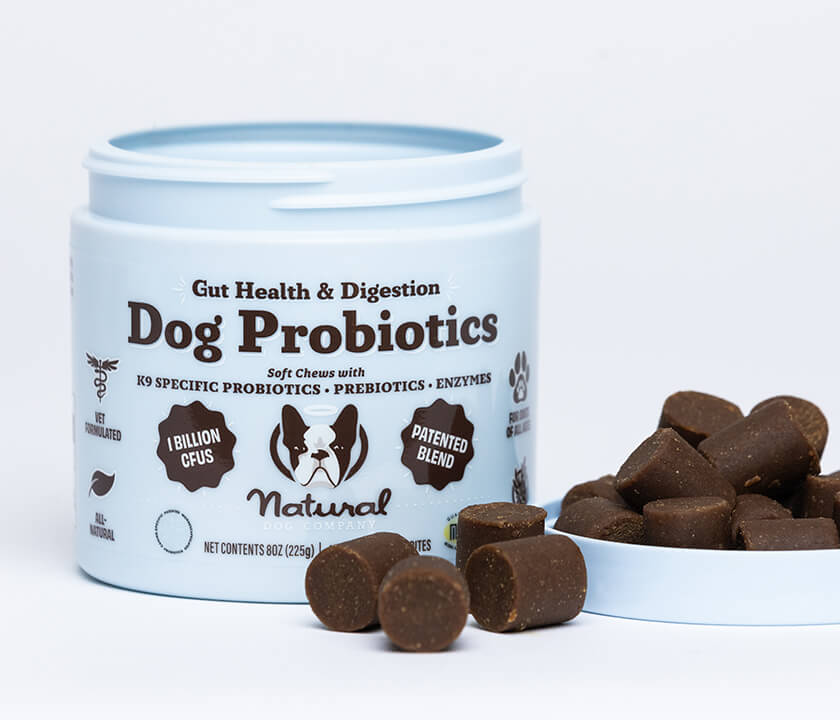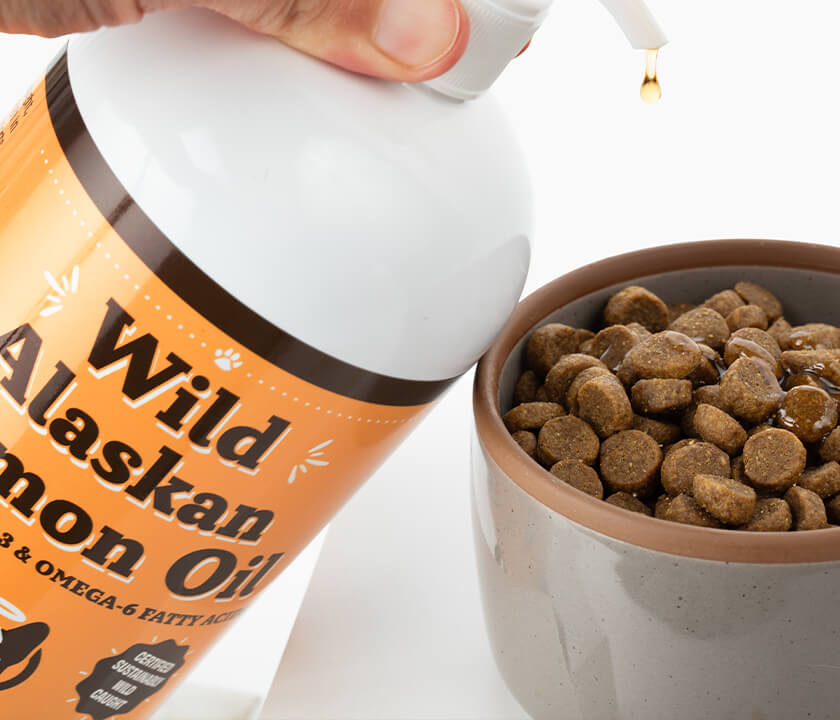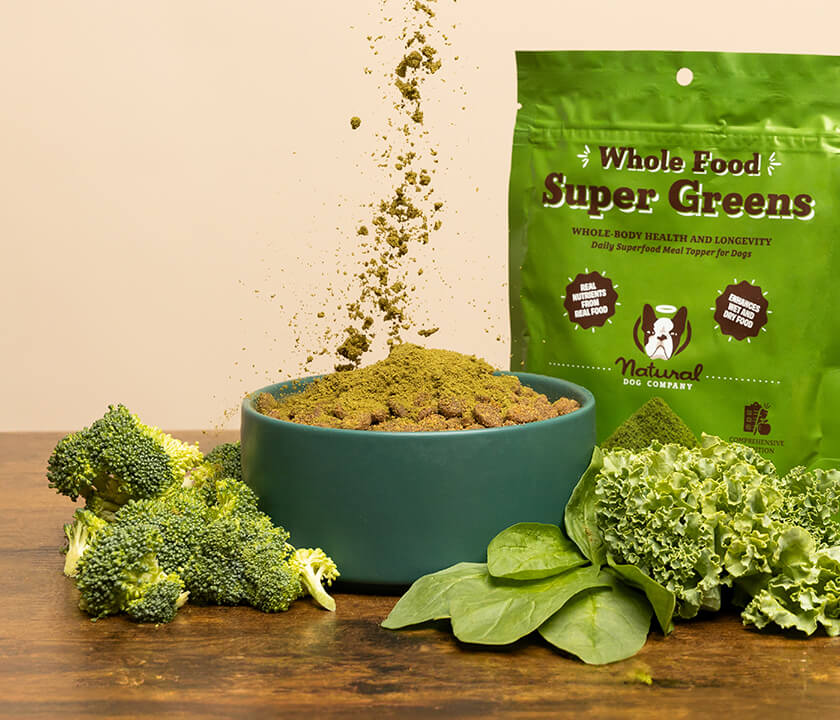Does your dog have dry, irritated and itchy skin? It can be quite frustrating and uncomfortable when it happens to humans and, although they can’t speak and express the same frustrations and concerns, dogs often experience dry skin issues, too.
Lucky for us, when we notice our skin is a bit dry, we simply reach for healing lotions, creams, and even exfoliants; or perhaps we take an oatmeal bath. But when dogs experience similar skin problems, they can’t just slather on lotion like we can. Because of this, we must pay close attention to the tell-tale signs that let us know our dog is experiencing dry, itchy, and irritated skin.
What is the underlying cause of a dog’s dry skin in the first place? And how can you fix it quickly and safely? You love your dog as if they were your child, so you obviously want the best for them and their health. If you have an itchy dog on your hands, it shouldn’t go ignored. While dry skin doesn’t seem like a huge concern, it can certainly allude to an underlying condition , like food allergies, parasites, fleas, or even more serious medical conditions. So before you can fix your dog’s dry skin, you must first determine the cause.
Symptoms to Look For if Your Dog Has Dry Skin
- Constant scratching
- Rubbing up against furniture to relieve an itch
- Visible dandruff and skin flaking on your dog and in their fur
- Visible redness and irritated skin
- Scaly skin
- Hair loss
- Inflammation and/or scabbing
What Causes Dry Dog Skin?
Allergies
Dogs get allergies, too, just like we do. Their skin may have an allergic reaction to the food they eat, different grasses, infestations of fleas and flea saliva, chemicals on the ground, or pollen during particularly difficult months for seasonal allergies. And all of these reactions can lead to skin issues and dry, dehydrated skin in particular.
An allergy to dog food is less common, while allergies to fleas and flea saliva is more prevalent and can certainly be the reason your dog has dry skin. Flea saliva usually creates an allergic reaction when it enters the dog’s skin as the flea feeds. If you can see that your dog has fleas, this could explain why your dog’s skin is dry and itchy.
Diet
Many people are surprised to learn that poor nutrition can be a major cause of skin problems in dogs, even if the dog is not allergic to any particular food ingredient. The quality of the food your dog eats plays a big role in his overall health, including the condition of his skin and coat. Essential fatty acids are one of the most important nutrients for healthy skin, and many commercial dog foods are deficient in these nutrients. But of course, allergens can also contribute to poor skin health, even if your dog does not have a severe reaction to them.
Skin infections
Sometimes, skin, bacterial, and fungal infections are to blame, and those types of conditions should first be diagnosed by a veterinarian. Other initial causes of dry skin can lead to bacterial infections as the dog scratches and breaks the surface of the skin. This can easily allow bacteria to enter scratches and wounds they create, leading to a more serious skin condition or infection that requires medical attention from a veterinarian.
Ringworm is one type of fungal infection that can cause your dog to have dryness and itchiness. A sign of a larger type of infection made apparent by dry skin can be identified by redness, hot spots, inflammation, rashes, and more.
Parasites
If you’re noticing dry or flaky skin on your dog, unfortunately, parasites can’t totally be ruled out. Check with your veterinarian to make sure your dog doesn’t have parasites. In addition to dry skin, parasites can also cause mange or canine scabies — just another reason why seemingly simple skin issues shouldn’t be disregarded. Common skin parasites to be on the lookout for include fleas, ticks, and ear mites.
Cold or dry weather
Cold weather usually means drier skin. If you live in a region with low humidity, it’s also a potential aggravator of skin issues. This is true for humans, and it’s also true for our dogs. While dry air isn’t as serious as some of the causes we discussed earlier, it can still create an extremely irritating and uncomfortable situation for your dog.
Their skin simply dries out like ours does in the cold or dry months. It’s itchy and uncomfortable and, if left untreated, can lead to other skin conditions and issues like the bacterial and fungal infections mentioned earlier.
Irritating shampoos and soaps
Did you know that a dog’s skin is much more sensitive than ours? This is especially true when products used on your dog’s fur and skin contain harsh chemicals. Some of those chemical ingredients may do a good job of cleaning your dog’s fur, but they can be incredibly drying to their sensitive skin and strip their fur of naturally produced oils.
Has your dog ever needed a bath and all you had to use was your human shampoo? If so, never use human shampoo on your dog again. The soaps and shampoos we use on or hair and body can be extremely irritating and harmful to dogs, even if they don’t show signs of that irritation right away — avoid using human shampoos and soaps on your dog altogether, even if it means a smelly pup has to wait for that much-needed bath.
When desperate times call for desperate measures, settle for a warm water rinse until you can get your paws on dog grooming products that won’t irritate their skin. By using a specially formulated dog shampoo and avoiding excessive bathing, you will be doing your dog a favor.
Yeast infections
Yeast often lives on dogs’ skin and can be the reason why their skin is overly dry and itchy. Yeast infections in dogs can cause them to scratch, lose hair, and cause redness and inflammation of the infected areas. A high-quality natural balm such as Skin Soother can help to relieve symptoms of a canine yeast infection.
Autoimmune disorders
Autoimmune disorders occur when the body’s immune system mistakenly attacks healthy cells. While these disorders are relatively rare, they can cause a wide range of skin problems. Common symptoms include itchiness, hair loss, and changes in skin color.
Autoimmune disorders like Canine Lupus and Pemphigus can be challenging to diagnose, so it’s important to work with a veterinarian if you suspect your dog may be affected. There are several treatment options available, but, unfortunately, there is no cure for autoimmune disorders. However, with the right care and management, dogs can live happy and healthy lives despite these conditions.
Age
As our canine friends age, they sometimes experience worsening skin conditions. This is often due to lowered immune system health, leading to greater susceptibility to health issues in general. While this is not something to be overly worried about, it’s important to be aware of the signs so you can take proper care of your pup.
Aging dogs may experience thinning fur, dry skin, and hot spots. However, if you notice any excessive itching, redness, or swelling, it’s important to take your dog to the vet. They can assess the situation and help you determine the best course of action.
How to Treat Your Dog’s Dry Skin
Treating your pup’s dry skin depends on the cause. A proper diagnosis of potential causes is important in treating the condition appropriately.
- Does your dog need flea medicine?
- Do they need extra attention from their vet?
- Does your dog need a high-quality or hypoallergenic food free of allergens?
- Do they need an antibiotic to treat a more serious skin or bacterial infection?
Determine how to treat the root of the problem, and then use Natural Dog Company’s Skin Soother to further nurture, hydrate, and heal dry skin on dogs. If the root of the dry skin is just dry, winter air or something less severe, a few applications of Skin Soother can do the trick to totally transform the area that needs a little TLC in the form of moisture and deep hydration.












